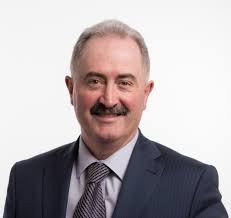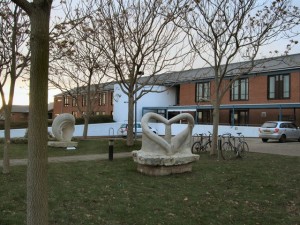The outgoing chief executive of the Sussex Partnership mental health trust presented his final report to the council of governors at a meeting in Hove this morning (Monday 16 January).
Colm Donaghy restated his disappointment that the Care Quality Commission (CQC) had recently again rated the trust as requiring improvement.
But he spoke of his optimism about the prospect of the CQC rerating the trust as good after it promised to carry out a further inspection within six months.
“They recognised improvements made by the trust,” Mr Donaghy said, adding that seven out of the 11 core services were rated as good. Previously the figure was five.
The CQC report on the Sussex Partnership NHS Foundation Trust was published last month after an inspection in September – and it followed an inspection in January 2015.
Mr Donaghy told the meeting at Mill View Hospital, in Hangleton, that the trust and the CQC held a “quality summit” last week and an improvement plan had been drawn up.
Deputy lead governor Scott Hunt said: “I felt quite frustrated because some of the things that stopped us going to good were things we raised three or four years ago.
“How much of it was a financial issue? We didn’t say that it was but the CQC could have delved more.”

Mr Donaghy said: “We could do with more resources. We’re not commissioned to provide 24-hour crisis cover yet that’s one of the areas that led to us being rated as requires improvement.”
The trust is in talks with health commissioners about making the changes required, he said, adding: “You mentioned training, appraisal and segregation. I understand the frustration that people feel with how quickly we are moving forward … but it requires significant capital and work to be done.
“We have given a commitment as a board that we will completely segregate our (mixed sex) wards.
“Now, that will have implications for some of our patients in relation to how far they have to travel.”
He said that training was improving – “and I know you’ve heard that before” – and appraisal levels were also improving, with a focus on quality rather than quantity.
He said: “We could push the numbers – and we have to an extent – but that (focus on quality) takes a wee bit more time. I understand the frustration – and we could always do better.”
Richard Bayley, deputy chair of the trust, spoke about the cost and timescale for ensuring proper segregation of male and female patients but added: “There’s a clear identified budget.
“Longer term, there are probably about half a dozen areas that need to be looked at across the trust.”

Caroline Armitage, who chairs the trust and the council of governors, said: “The trust inherited a number of private finance initiative (PFI) projects which are expensive facilities but which are no longer fit for purpose.
“That has been one of the constraints around meeting our commitment to segregation.”
Mr Bayley said that it would take time as the trust would also need to realise assets – sell property – but work had started on a strategy.
He said that there were six PFI contracts, adding: “There are two we are trying to hand back to NHS Property Services.
“We don’t use the majority of those two facilities. They’re fairly straightforward. There are two that are middle ranking and two where we are going to have to do some work.
“The discussions we have had with Aviva have been pretty positive. They want to be confident that when we restructure it they’re going to get their return.
“We’re probably in a better position than (acute hospital trusts). It should be capable of being done but it’s not a straightforward task.”
Mr Donaghy said that he was pleased that more staff were responding to the annual staff survey, with better results in 61 out of 68 areas. Last year the trust had better responses in only seven areas.
He said: “The trust will analyse the detailed report when it is received in late February to identify further areas for improvement.”








